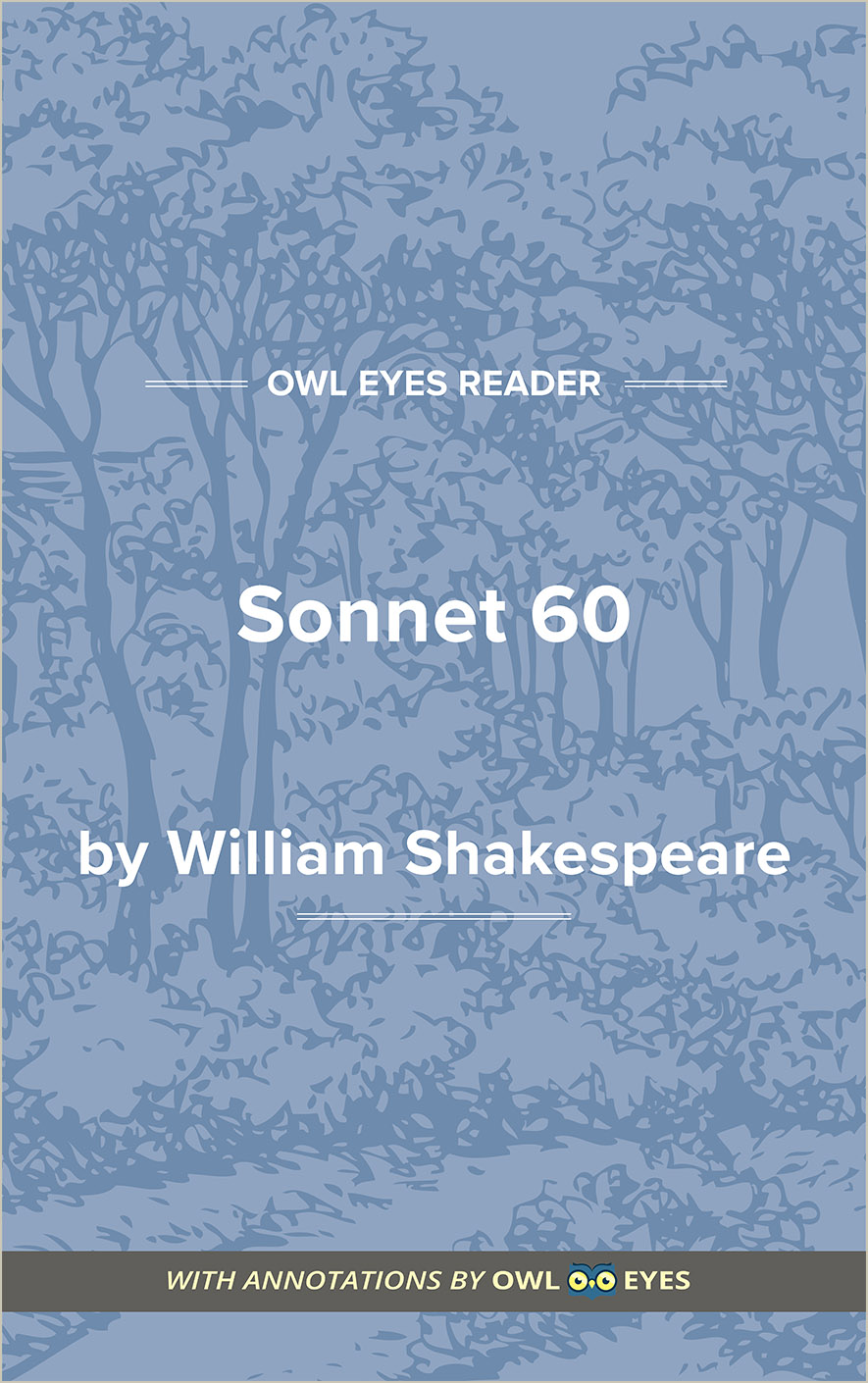Analysis Pages
Vocabulary in Sonnet 60
Vocabulary Examples in Sonnet 60:
Sonnet 60
🔒"Crooked..." See in text (Sonnet 60)
"Crawls..." See in text (Sonnet 60)
"Nativity..." See in text (Sonnet 60)
"sequent..." See in text (Sonnet 60)
" minutes hasten ..." See in text (Sonnet 60)
"flourish..." See in text (Sonnet 60)

